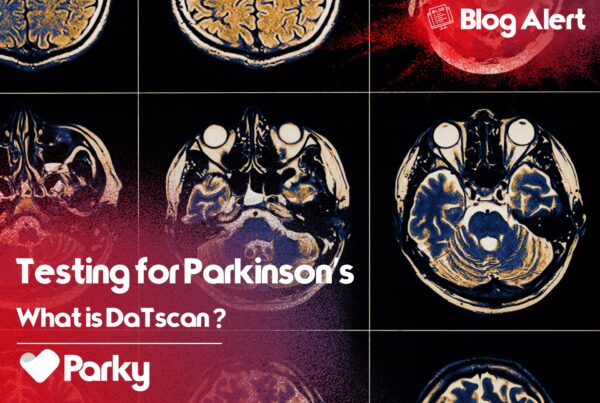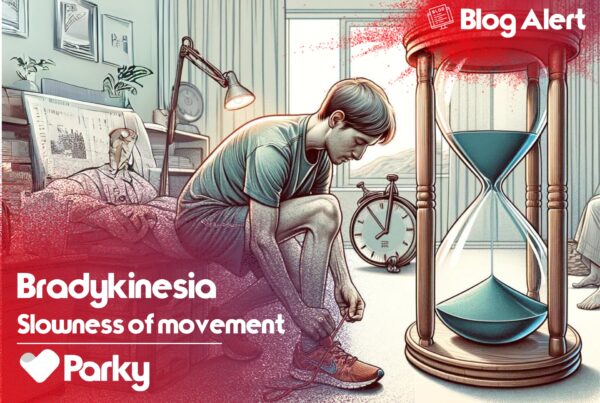
Parkinson’s disease is a progressive neurological condition affecting millions worldwide. While there is no cure, understanding the factors that can worsen the disease is crucial for effective management. We’ll explore 10 things that worsen Parkinson’s disease symptoms and provide practical tips to address them.
10 things that worsen Parkinson’s disease
1. Medication Management:
Why?
Proper medication management is critical because medications, such as levodopa and dopamine agonists, play a central role in controlling motor symptoms in Parkinson’s disease. However, irregular or inconsistent medication intake can lead to fluctuations in symptom control, known as “on-off” episodes.
Tips:
- Establish a medication schedule and set alarms or reminders to ensure timely doses.
- Communicate openly with your healthcare provider about any side effects or concerns.
- Discuss potential adjustments in medication as the disease progresses.
- Use Parky: Apple Watch app for Parkinson’s for medication reminders and symptom tracking.
Research: A study published in the journal “Neurology” in 2019 emphasized the importance of medication adherence in managing motor fluctuations in Parkinson’s disease.
2. Stress:
Why?
Stress and anxiety can trigger the release of stress hormones that may interfere with the effectiveness of dopamine in the brain, worsening motor symptoms like tremors and rigidity.
Tips:
- Practice stress-reduction techniques like deep breathing, mindfulness, or progressive muscle relaxation.
- Consider joining support groups or seeking counseling to learn coping strategies.
- Maintain a balanced daily routine to reduce stressors.
Research: A study published in the “NPJ Parkinson’s disease” in 2021 suggested that motor symptoms worsen with stress based on patient reported outcomes.
3. Lack of Exercise:
Why?
Regular exercise is essential because it helps maintain muscle strength, flexibility, and balance. Parkinson’s disease often leads to reduced mobility, making physical activity vital for preserving independence.
Tips:
- Consult a physical therapist to develop an exercise program tailored to your abilities.
- Engage in activities such as walking, swimming, or yoga to improve coordination and mobility.
- Exercise can also boost mood and reduce stress.
Research: A study published in “Journal of Neurology” in 2011 highlighted that inactivity in PD was associated with worse walking performance, more disability in daily life, and greater disease severity.
4. Poor Nutrition:
Why?
A balanced diet is crucial to support overall health, energy levels, and the body’s response to medications. Poor nutrition can lead to fatigue and constipation. In addition, diet directly effects medication absorption in PD. This may cause fluctuations in motor symptoms.
Tips:
- Consume a diet rich in fruits, vegetables, whole grains, and lean proteins.
- Stay hydrated to prevent constipation, a common non-motor symptom in Parkinson’s.
- Consult a dietitian for personalized dietary recommendations based on your needs.
Research: A systematic review published in “Advances in Nutrition” in 2021 highlighted that dietary interventions have the potential to optimize levodopa efficacy and control side effects.
5. Infections:
Why?
Infections like urinary tract infections (UTIs) and respiratory infections can temporarily worsen Parkinson’s symptoms, leading to increased confusion, falls, and discomfort.
Tips:
- Practice good hygiene to prevent infections.
- Address any signs of infection promptly by seeking medical attention.
- Stay up to date with vaccinations recommended by your healthcare provider.
Research: A review published in “Journal of Parkinson’s disease” in 2021 suggested specific bacterial and particularly viral infections may increase vulnerability to PD.
6. Other Medical Conditions:
Why?
Coexisting medical conditions, such as diabetes or hypertension, can complicate Parkinson’s management. These conditions may require additional medications and monitoring.
Tips:
- Maintain regular check-ups with specialists to manage coexisting conditions.
- Keep your healthcare team informed about all your medical issues and medications.
Research: A review published in “Journal of Parkinson’s Disease” in 2020 emphasized the need for clinical management to consider other illnesses and resilience as they age with PD.
7. Lack of Sleep:
Why?
Sleep disturbances, including insomnia and frequent awakenings, can worsen fatigue and exacerbate motor and non-motor symptoms.
Tips:
- Create a sleep-friendly environment with a comfortable mattress and minimal noise.
- Limit caffeine intake, especially in the afternoon and evening.
- Discuss sleep issues with your doctor, who can recommend treatments or lifestyle changes.
Research: A study published on “JFrontiers in Aging Neuroscience” in 2022 suggests that worse sleep quality aggravates the motor and non-motor symptoms in Parkinson’s disease.
8. Depression and Anxiety:
Why?
Mental health issues like depression and anxiety are common in Parkinson’s patients and can affect overall quality of life, making symptom management more challenging.
Tips:
- Seek professional help from therapists or psychiatrists.
- Medication and therapy can be effective in managing depression and anxiety.
- Consider joining support groups for emotional support and shared experiences.
Research: A review published in “Clinic in Geriatric Medicine” in 2020 highlighted that depression and anxiety are often under-recognized because the somatic symptoms of depression often overlap with the motor symptoms of Parkinson disease and there is low self-reporting.
9. Environmental Factors:
Why?
Exposure to environmental toxins or chemicals may contribute to Parkinson’s disease development or progression in some cases, although the exact causes are not fully understood.
Tips:
- Be aware of potential hazards in your environment, such as pesticides or industrial chemicals.
- Take precautions to minimize exposure, especially in high-risk occupations or areas.
Research: Research in “Nature Communications” in 2023 have identified 10 pesticides that significantly damaged neurons implicated in the development of Parkinson’s disease.
10. Aging:
Why?
Parkinson’s tends to progress with age, and managing the disease may require adjustments in treatment plans and lifestyle as symptoms change.
Tips:
- Maintain open communication with your healthcare team to adapt your care plan as needed.
- Embrace adaptive devices and assistive technologies to support daily living.
Research: The “Aging Research Reviews” published a review in 2014 examining the impact of aging on the clinical features and management of Parkinson’s disease.
By proactively addressing these ten factors that can worsen Parkinson’s disease, individuals, along with their healthcare teams and support networks, can enhance symptom control, improve their quality of life, and manage the condition effectively.





